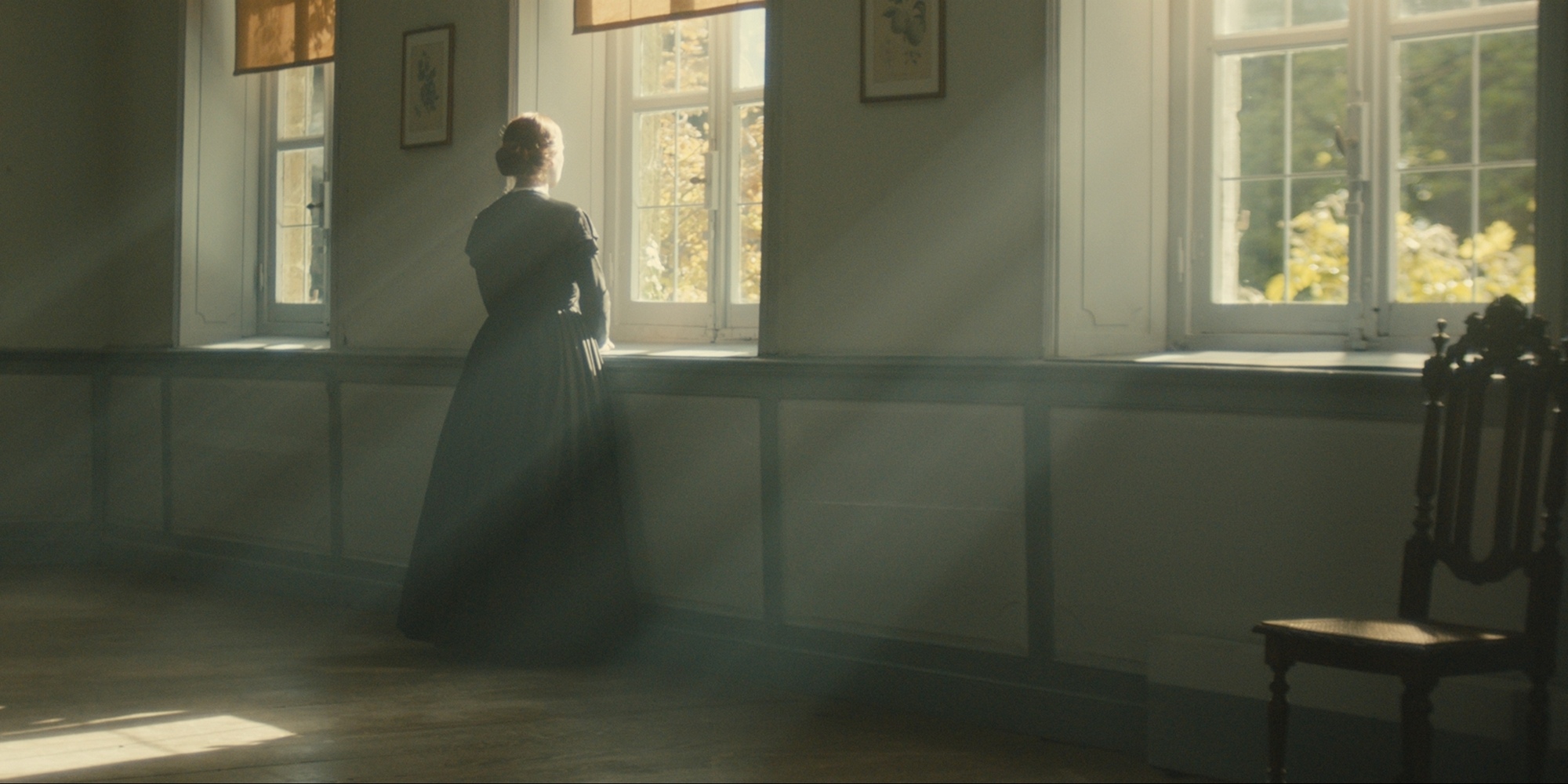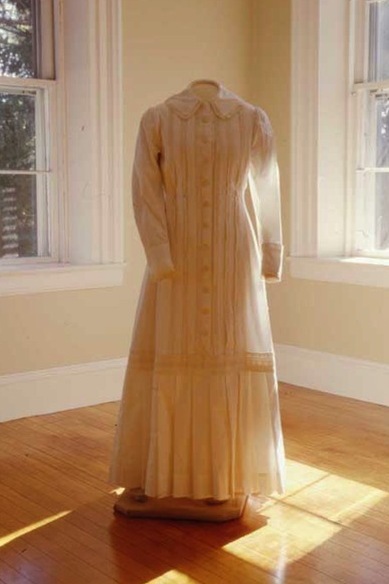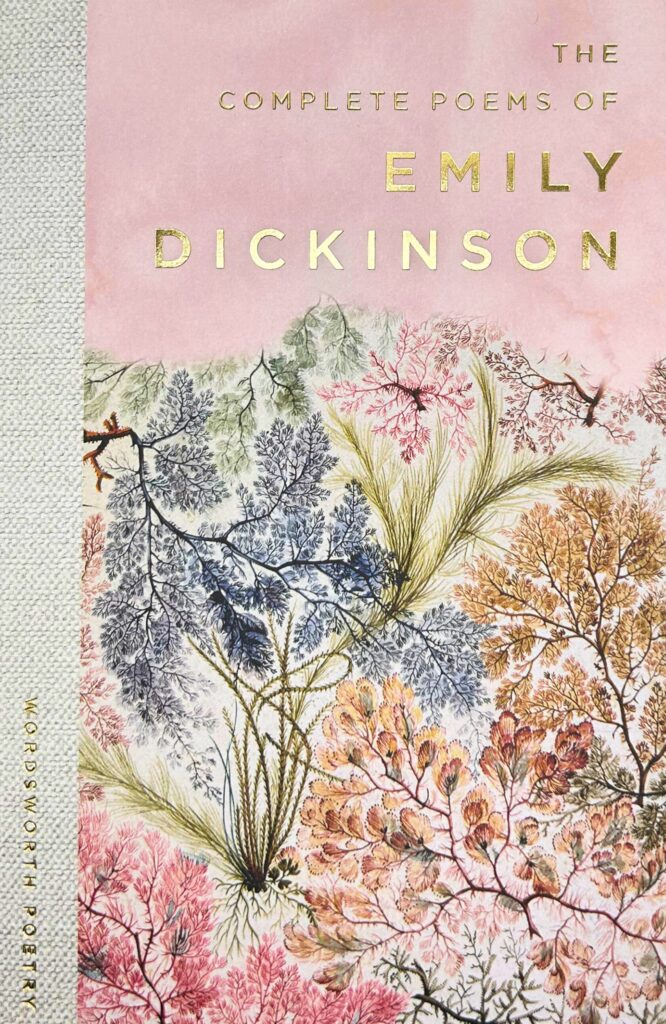
Stefania Ciocia reviews A Quiet Passion
Flawed labour of love: Terence Davies’s take on Emily Dickinson in ‘A Quiet Passion’ is reviewed by Stefania Ciocia
The writer’s craft is not a naturally cinematic subject. The solitary task of sitting at a desk and putting pen to paper lacks the sensory appeal that other artistic endeavours retain when they are translated onto the big screen. Mozart’s sublime music in Amadeus or the incomparable visual impact of Michelangelo’s Sistine Chapel in The Agony and the Ecstasy immediately come to mind, since we are talking about heavyweights in their respective disciplines. And yet, even in the case of these troubled titans, the creative effort is not the main source of the drama and the action; it helps too that these films deliberately engage with the legend, as well as the artist.
With its subtly oxymoronic title, Terence Davies’s Emily Dickinson biopic A Quiet Passion – premiered in Berlin in 2016 and is now on general release in the UK – seems to promise a subdued, realistic take on its protagonist, perhaps to redress the mythologizing that this extraordinary poet has been constantly subjected to, starting in her own lifetime. In a letter written in 1881, five years before Dickinson’s death at the age of fifty-five, Mabel Loomis Todd dishes out the gossip with unapologetic delight: “I must tell you about the character of Amherst. It is a lady whom the people call the Myth. … she has not been outside of her own house for fifteen years, expect to see a new church, when she crept out at night, & viewed it by moonlight. No one who calls upon her mother & sister ever sees her … she dresses wholly in white, & her mind is said to be perfectly wonderful.” This, in a nutshell, is Emily Dickinson in the popular imagination. (Todd, whose affair with Emily’s married brother Austin was a source of great distress for the entire family, would be the first to curate the posthumous publication of Dickinson’s poems. Her heavy-handed editorial interventions are as legendary as the reputation of her almost-sister-in-law.)
Dickinson speaks to me in a way that few other poets do. She gets at the essence of things, and this economy – for lack of a better word – makes her writing peculiarly resonant to a non-native speaker like me, for whom the primal language of poetry will always be Italian. Her evocations of states of mind feel both uniquely personal and quintessentially universal. Her use of language is lucid, and yet surprising, and never facile. Like countless other readers, I love and marvel at her work. I went to the cinema full of curiosity – how on earth would the film do justice to Dickinson’s poetic genius and eschew the convenient shorthand of cliché? – but prepared to be disappointed. In fact, I was pretty much convinced that I would be disappointed, in spite of the various headlines I’d seen in praise of Cynthia Nixon’s performance in the title role. So, out with it: I really – and I mean really – didn’t like the film. To give credit where credit’s due, it did manage to get a number of things right. Let’s start with the positives then. (The film does that too: it’s in the second half that it well and truly lost me.)
A Quiet Passion begins with a sharp, effective reminder of the rigorous Christian morality that pervaded New England in Dickinson’s time, requiring that individuals should profess their faith in public. The opening scene shows young Emily (Emma Bell) firmly standing her ground – alone amongst her fellow pupils at Mount Holyoke Female Seminary in refusing to conform to religious orthodoxy. Dickinson’s fierceness in safeguarding her intellectual and spiritual independence coexists with an intense, idiosyncratic religious sensibility, and is further accompanied by a healthy penchant for mischief. This sense of irreverence is shared by the three siblings in moments of touching familial camaraderie; my favourite is prompted by sombre Aunt Elizabeth (Annette Badland) sermonizing about the passage of time. Her admonitions about eternity are met by pithily cadenced ‘tick-tocks’ spoken by Emily, Austin (Benjamin Wainwright and later Duncan Duff) and their younger sister Vinnie (Rose Williams and later an extraordinary, radiant Jennifer Ehle) in turn.
The film strikes the right note in conveying the claustrophobia in the limited life ‘choices’ available to women – through the patriarchal rule has an iron grip on male children too, as evidenced by the injunction of Edward Dickinson (Keith Carradine) to his son Austin not to enlist in the war. Incidentally, the overt references to the Civil War – and to Dickinson’s poetic response to the conflict – make for a brief, poignant and necessary interlude, lest spectators should unknowingly confuse the writer’s later voluntary seclusion with a complete disengagement with the world. Dickinson’s attitude to romantic love is also suitably nuanced, at least to begin with: spinsterhood is not cast as a pathological renunciation but as a mark of perfect contentment in one’s family circle. It’s contentment we can believe in because of the close, supportive relationship between Emily and Vinnie. The representation of this sisterly bond is the greatest strength in A Quiet Passion. Conversely, the relatively scant attention devoted to Austin’s wife Susan Gilbert (Jodhi May) is a missed opportunity: one would be hard pressed to surmise that she is the dearly cherished “Sister Sue”, the recipient of the majority of the letters written by Dickinson to have survived to this day – a prolific correspondence, especially if we consider that the two women lived next door to each other.
As is to be expected, elsewhere the script draws attention to the many unpalatable compromises that might come with marriage: Emily points out that, unlike her father, a husband might not tolerate her nocturnal writing sessions and, in a scene of beautifully modulated female intimacy, Susan confesses her dislike of certain conjugal duties. The loss of friends to married life is another moving detail, and true to Dickinson’s experience. It’s a pity that it should come as part of the lengthy exploration of the poet’s friendship with Miss Vryling Buffam (Catherine Bailey), a coquettishly outspoken proto-feminist who seems to have walked out of a play by Oscar Wilde. The affected dialogue between Dickinson and her formidable companion consists exclusively of quips and witticisms, including Buffam’s vacuous, instantly forgettable explanation of why she is resigned to getting married in good time – as indeed she does, promptly disappearing from the scene. “Good riddance”, I thought. Is this oddball comedy of manners meant to demonstrate that Dickinson is no stick in the mud, but a woman of the world in her own way – and one with a sense of humour to boot? If so, these elaborate set-pieces are a failure of excessive zeal.
Much better to let Dickinson’s playfulness come across in the small details, such as her recitation of ‘I’m nobody! Who are you’ to her newborn baby nephew. It is an exquisite comic touch, just like the loud clinking of crockery during the awkward tea party with the dour, abstemious Mrs Wadsworth (Simone Milsdochter) and her husband Charles (Eric Loren). Again, there is only the slightest hint that this is the Reverend Wadsworth with whom Dickinson had a rich epistolary exchange (there are speculations – as indeed there are about several other people – that he might have been the addressee of the three “Master Letters” and the passionate, conflicting feelings they express). But maybe I’m asking too much of a two-hour-long feature film – after all, Wadsworth’s relocation to San Francisco is shown to leave Emily heartbroken.
Speaking of departures, I wouldn’t have been so hasty in celebrating Miss Buffam’s had I known what would follow. The excessive, superficial levity of the film’s first half is replaced by bouts of sententious ponderousness in the second. It’s a remarkable about-turn in visual terms too: after the twirling of parasols in sun-bathed, genteel country walks come lingering shots of dark interiors. And then the relentless misery-fest begins, with Dickinson – painfully self-conscious of her lack of conventional beauty, grief-stricken and plagued by debilitating ill-health – turns into the “gnomic Garbo” which Adrienne Rich cautions us against reducing her to in her brilliant 1976 essay ‘Vesuvius at Home’ (still one of the most insightful appreciations of Dickinson in my opinion).

The tragedies portrayed by the film are true enough to the poet’s life, but what I object to is the voyeuristic attention to extreme suffering in the prolonged death scenes, particularly when they involve the female characters, Emily and her mother (Joanna Bacon). Their agony is exploited as an opportunity for histrionics. Why else dwell so long on the torturous convulsions, the symptoms of Bright’s disease, that periodically seize Dickinson? Do they illuminate her writing, or her life, in any way? Why this gluttony of pain?
Equally heavy-handed is the treatment of Austin’s affair with Todd (Noémie Schellens) – Emily catches them in flagrante no less, though Todd probably never laid eyes on her in reality – and the ensuing shouting matches. While the joy in the first hour is marred by recurrent flippancy and triviality, the latter part of the plot has no joy whatsoever. As the story unspooled in its downward spiral, all I could think of were the clunky telegraphing of eccentricities and contradictions. Cue Vinnie’s remark “You are wearing white!” when Emily first dons ‘the dress’ that has long been part of her iconic image.
(Mercifully, earlier there had been no “You’re sewing your fascicles!” when Emily had carefully bound her poems together in a quiet, understated scene.) Alongside the emphasis on Dickinson’s insecurity – especially about her appearance – her demonstrations of confidence come across as inexplicable arrogance or, worse, attempts at overcompensation. And while nobody writes so starkly and uncompromisingly about death and despair, where are the many other Dickinsons? Where is her love for Vinnie’s garden? Her ecstasy in the natural world?
Not even the film’s valiant endeavour to let Emily speak for herself – the many poems rendered in their entirety in voiceover – manages to make up for these omissions, and turn things around for me. In fact, to be honest, I didn’t take to Nixon’s performance, especially in these voiceovers: there is a solidity to Dickinson’s words that I couldn’t hear in the recitation. It’s too wispy, too breathy. Nevertheless, both in quantity and range, the film offers a bountiful selection of poems: amongst the obvious choices (from memory, ‘The heart asks pleasure first’, ‘This is my letter to the world’, ‘My life closed twice before it’s close’, ‘Because I could not stop for death’), there are several poems I didn’t recognize and many more that I would have expected to hear but didn’t. For this blending of the well-known and the less familiar, I am very grateful. The film is clearly a labour of love, if a flawed one, though most critics disagree with me and have hailed it a triumph. Either way, I cannot believe that anybody could watch it and not rush back to their copy of Dickinson’s verse. I know I did.
Stefania Ciocia
Reader in Modern and Contemporary Literature
Canterbury Christ Church University
Books associated with this article
